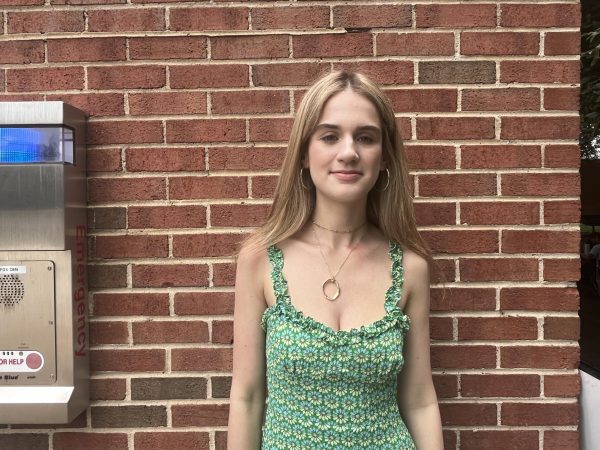As the school year winds down, Sidwell seniors are working on one of the most anticipated aspects of their final year: the senior project. Guided by faculty advisors, these projects offer students the opportunity to dive into a subject they are passionate about, giving them a month to create something meaningful.
Senior projects begin in February when students finish their senior-year finals. Students then select their own project advisor, submit a detailed proposal and begin their projects.
Nyla Ahmad, a current senior, is working on rebinding books and editing a novel she wrote previously. She is finding it fun, though a bit embarrassing, to revisit her old writing.“I’ve learned a lot so far: how to format a book, rebind it and that trial and error helps make a perfect end product,” she commented.
Choral director Sarah Markovits, one of organizers of senior projects, recalled some standout projects from past years. “One student had been working on a book since elementary school and decided to try to get it published. That was a really neat project,” she said. Other memorable projects have included music recitals, dance performances and furniture building.
However, not all projects are successful. Markovits remembered a group of six students who spent their project time baking a single batch of cookies. “They did not get their diplomas and had to redo a senior project over the summer,” she noted.
Since 2019, there have been noticeable trends and changes in the types of projects students choose. The shift to virtual projects during the pandemic years required many adjustments, but it also provided an opportunity to rethink and refine the program. Today, the emphasis is on ensuring projects are meaningful and that students feel proud of their work.
The senior project is designed to give students time to explore their passions before they go to college. Students are supposed to spend about 20 to 30 hours per week on their project, and the subject must be something the student is genuinely passionate about. Additionally, there is a budget cap of $300 to maintain equity among students, and projects are typically required to stay within a 30-mile radius of the school, though there are occasional exceptions for cases such as hiking expeditions or projects at the China Folk House.
The success and impact of a senior project are assessed during a defense session at the end of the project period, in which students present their projects to a panel of two teachers and a group of their peers. According to Markovits, The teachers provide feedback and decide whether the project meets the required standards. Most students pass the first time, but those who don’t have a chance to revise and defend their project again. Exceptional projects are highlighted and may be presented to the entire school. These selections are based on feedback during the defenses with the goal of inspiring future seniors by showcasing various impressive projects.
Markovits gives students the advice to “find something you love.” Whether it’s an internship, a creative endeavor, or a community service project, the key to senior projects is to choose something that excites you. Markovits encouraged students to consider their passions and interests, suggesting that they focus on something they wouldn’t normally have the chance to explore. “It’s a month to do something you might never do again. Make it count,” she said.
According to Markovits, senior projects represent a unique part of the Sidwell experience. They challenge students to step out of their comfort zones, pursue their passions and create something meaningful.










































